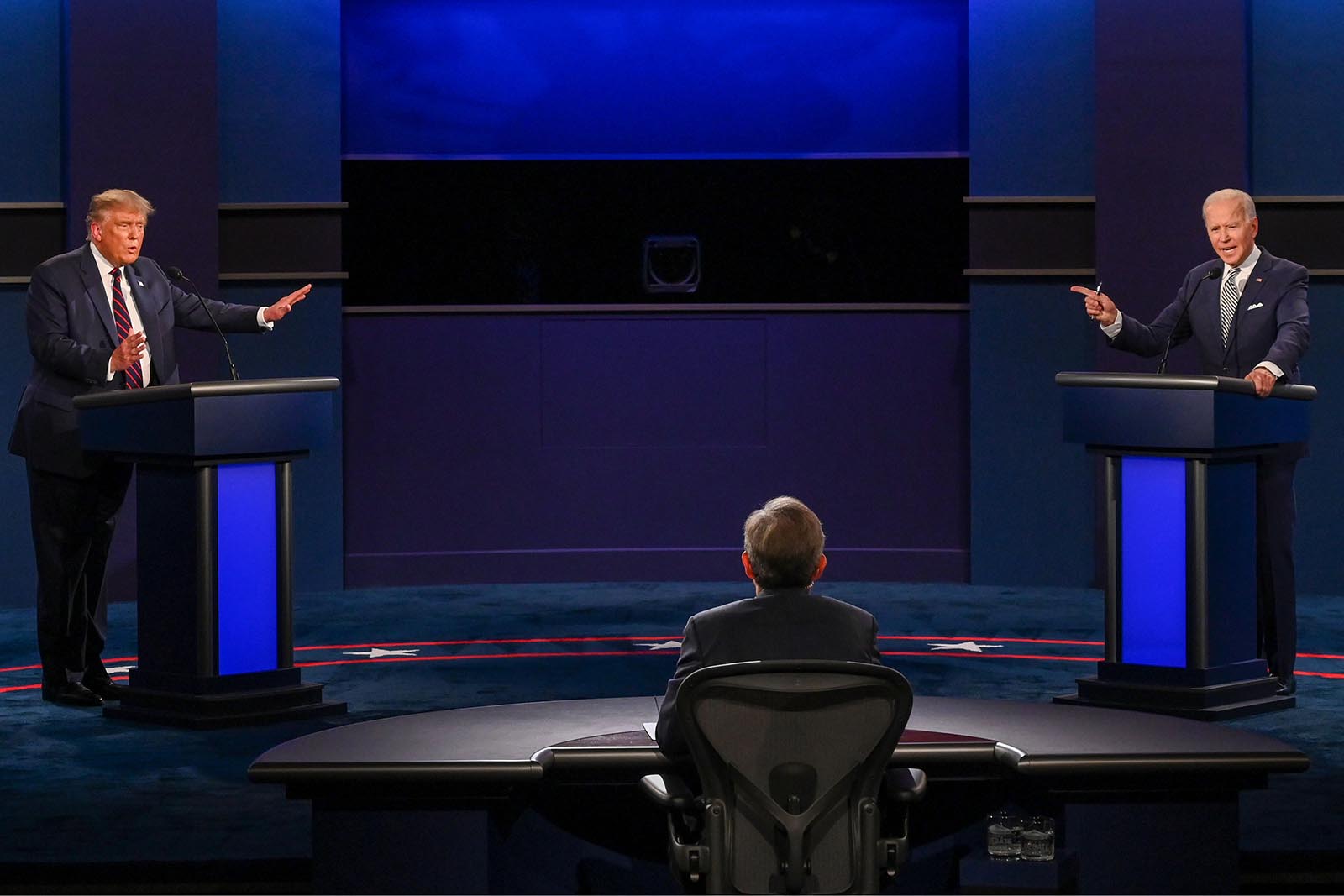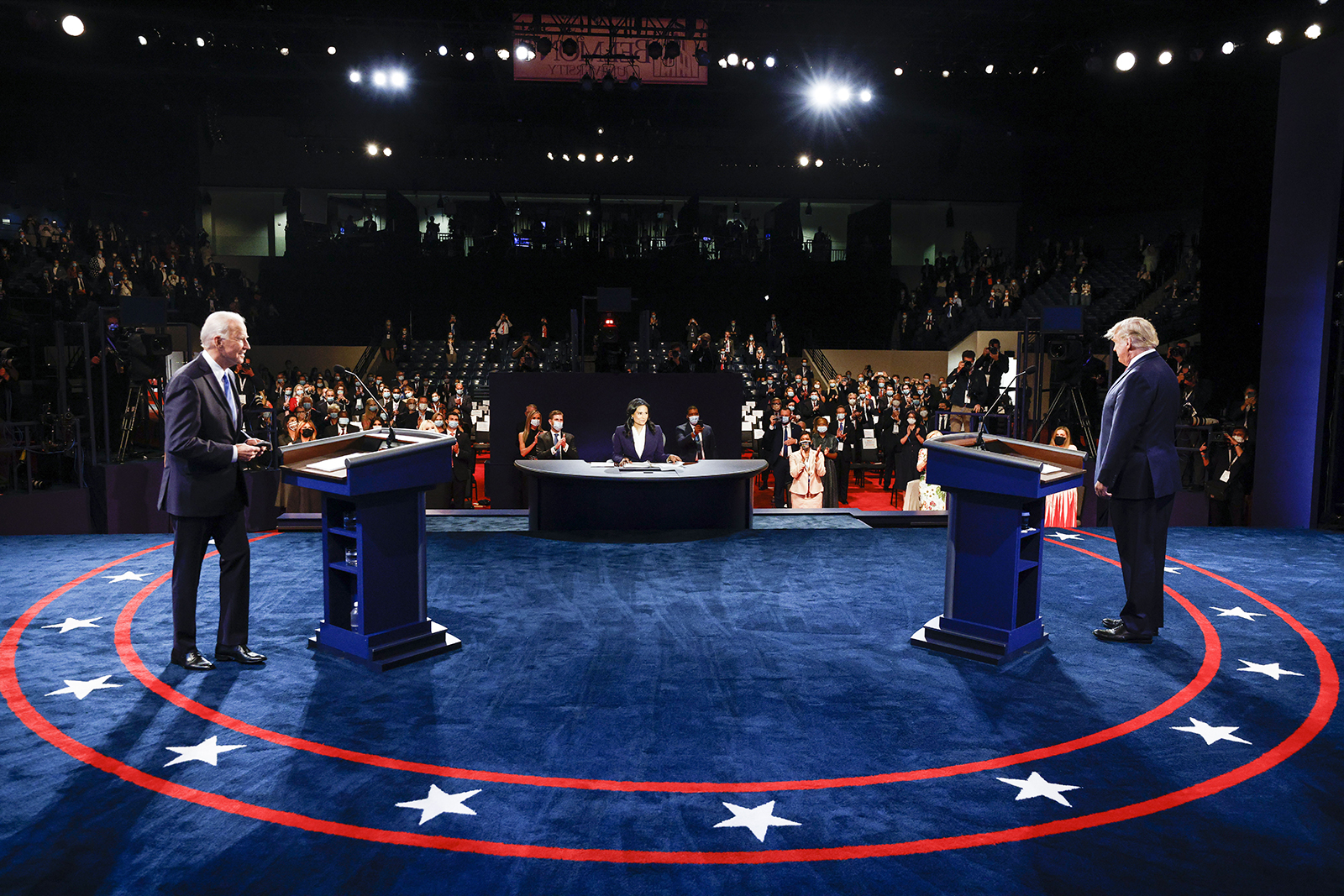Presidential Debate Schedule: What Time Is Presidential Debate

The presidential debates are a crucial part of the election cycle, offering voters the opportunity to directly compare the candidates’ positions on key issues. These debates provide a platform for in-depth discussions, allowing candidates to articulate their vision for the nation and respond to their opponents’ criticisms.
Debate Schedule, What time is presidential debate
The following table provides a comprehensive overview of the upcoming presidential debates:
| Date | Time | Location | Participants |
|---|---|---|---|
| September 26, 2024 | 9:00 PM EST | University of Nevada, Las Vegas | Joe Biden (Democrat) and Donald Trump (Republican) |
| October 15, 2024 | 9:00 PM EST | University of Michigan, Ann Arbor | Joe Biden (Democrat) and Donald Trump (Republican) |
| October 22, 2024 | 9:00 PM EST | University of California, Berkeley | Joe Biden (Democrat) and Donald Trump (Republican) |
Significance of Debates
Each debate holds a unique significance in the election cycle. The first debate often sets the tone for the campaign, allowing voters to assess the candidates’ strengths and weaknesses. The second debate usually focuses on more specific policy issues, while the third debate often centers around foreign policy and national security.
Key Topics and Issues

The presidential debates are a crucial platform for candidates to present their policies and engage with the electorate. They offer a unique opportunity for voters to see how candidates handle pressure, respond to tough questions, and articulate their vision for the country. With the stakes high, these debates are likely to focus on a range of critical issues that will shape the election outcome.
The Economy
The economy is always a top concern for voters, and this year is no exception. The debates will likely delve into issues such as inflation, unemployment, and economic growth.
- Candidates will be asked about their plans to address inflation, which has reached its highest levels in decades. This will involve discussing their views on monetary policy, fiscal spending, and supply chain issues.
- The candidates’ positions on unemployment will also be scrutinized. This could involve discussions about job creation, workforce development programs, and policies aimed at boosting wages.
- The candidates’ vision for economic growth will be another key topic. This could involve discussions about tax policy, regulation, and infrastructure investment.
The candidates’ approaches to these economic issues will likely be a major factor in determining the election outcome.
Healthcare
Healthcare is another critical issue that is likely to be a major focus of the debates. The debates will likely address the affordability and accessibility of healthcare, as well as the role of government in healthcare.
- Candidates will be asked about their plans to lower healthcare costs, which have been a major concern for many Americans. This could involve discussions about prescription drug prices, insurance premiums, and the cost of medical care.
- The candidates’ positions on access to healthcare will also be scrutinized. This could involve discussions about expanding coverage, providing more affordable options, and ensuring quality care.
- The candidates’ views on the role of government in healthcare will be another key topic. This could involve discussions about Medicare, Medicaid, and the Affordable Care Act.
The candidates’ stances on healthcare are likely to have a significant impact on the election outcome, particularly among voters who are concerned about the cost and availability of healthcare.
Climate Change
Climate change has become an increasingly important issue for voters, and it is likely to be a major topic of discussion in the debates.
- Candidates will be asked about their plans to address climate change, which is a growing threat to the planet. This could involve discussions about reducing greenhouse gas emissions, investing in renewable energy, and adapting to the effects of climate change.
- The candidates’ positions on environmental regulations will also be scrutinized. This could involve discussions about policies aimed at reducing pollution, protecting natural resources, and promoting sustainable development.
- The candidates’ views on the role of government in addressing climate change will be another key topic. This could involve discussions about the government’s role in promoting clean energy, investing in climate research, and supporting international efforts to combat climate change.
The candidates’ approaches to climate change are likely to be a key factor in determining the election outcome, particularly among voters who are concerned about the environment and the future of the planet.
Social Issues
Social issues such as abortion, gun control, and immigration are often highly divisive and are likely to be discussed in the debates.
- Candidates will be asked about their positions on abortion rights, which is a deeply personal and emotional issue for many voters. This could involve discussions about the legality of abortion, access to abortion services, and the role of government in regulating abortion.
- The candidates’ stances on gun control will also be scrutinized. This could involve discussions about the Second Amendment, gun violence prevention measures, and the role of government in regulating firearms.
- The candidates’ views on immigration will be another key topic. This could involve discussions about border security, immigration reform, and the path to citizenship.
The candidates’ positions on social issues are likely to have a significant impact on the election outcome, particularly among voters who are passionate about these issues.
Foreign Policy
Foreign policy is another critical issue that is likely to be addressed in the debates.
- Candidates will be asked about their approach to foreign policy, which involves a complex set of issues, including national security, international relations, and global challenges. This could involve discussions about the candidates’ views on the role of the United States in the world, their foreign policy priorities, and their strategies for dealing with global threats.
- The candidates’ positions on specific foreign policy issues will also be scrutinized. This could involve discussions about the candidates’ views on issues such as the war in Ukraine, the rise of China, and the threat of terrorism.
- The candidates’ views on the role of the military will be another key topic. This could involve discussions about the candidates’ views on defense spending, military intervention, and the use of force.
The candidates’ stances on foreign policy are likely to have a significant impact on the election outcome, particularly among voters who are concerned about national security and the role of the United States in the world.
Debate Format and Rules

Presidential debates are structured events where candidates face off in a controlled environment to present their positions on various issues and engage in a dialogue with each other. The format and rules of these debates are crucial as they dictate the flow of the discussion and influence how the candidates can present themselves.
Debate Structure and Timing
The debate format typically involves a series of segments, each focusing on a specific topic. Each segment usually includes an opening statement from each candidate, followed by a moderated discussion and a closing statement. The length of each segment varies, but it’s usually around 15-20 minutes.
Moderators and Their Role
Moderators play a critical role in guiding the debate and ensuring that the discussion remains focused and respectful. They typically ask questions to the candidates, manage the time allotted for each segment, and enforce the rules of the debate.
Audience Participation
The role of the audience in presidential debates can vary. In some cases, the audience may be allowed to ask questions or provide feedback, while in others, they are expected to remain silent and observe the discussion. The level of audience participation can impact the tone and dynamics of the debate.
Advantages and Disadvantages of Different Debate Formats
Different debate formats can have distinct advantages and disadvantages. For example, a town hall format, where the audience can directly ask questions, allows for greater audience engagement and can lead to more spontaneous and candid responses from the candidates. However, this format can also be less structured and may result in the discussion veering off-topic.
Impact of Debate Format on Candidate Performance
The debate format can significantly influence how candidates perform. For example, a candidate who is comfortable with a fast-paced, back-and-forth format may excel in a debate that involves a lot of interruptions and quick exchanges. Conversely, a candidate who prefers a more structured and deliberate approach may struggle in a debate that lacks clear guidelines or time limits.
What time is presidential debate – Yo, so what time is that presidential debate anyway? I’m trying to catch it, but I gotta make sure I don’t miss any of the action. Speaking of action, minnesota tim walz is definitely keeping things lively in the North Star State.
But back to the debate, I need to know when to tune in so I can get my popcorn ready.
Yo, so the presidential debate is gonna be lit, right? But hold up, before we get into all that, let’s talk about this whole COVID-19 thing. You know, the World Health Organization ( who covid 19 ) has been giving us the lowdown on this pandemic.
Anyway, back to the debate, I’m hyped to see what goes down!
